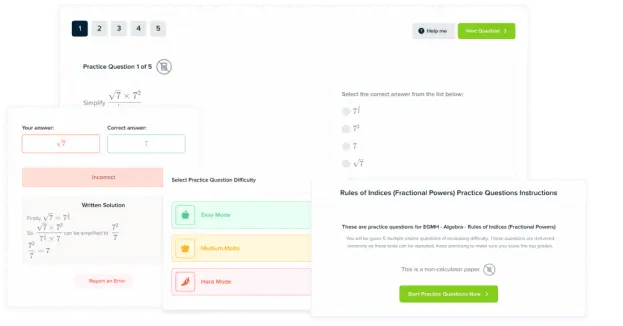Food Production
Food Production Revision
Food Production
Many factors can affect food security, particularly the ever-growing human population. Specific farming techniques are used to increase the efficiency of food production but can cause even more issues and are often controversial. Overfishing is a major problem in some areas, with some fish populations at risk of disappearing altogether. Fish stocks are maintained using fishing quotas and controlling the size of the net used.
Food Security
Food security means having enough food to feed a population. Due to a number of different factors, food security in some parts of the world is threatened.
- The population is growing rapidly, birth rates are increasing in some parts of the world and death rates are decreasing in others. More people on earth means more food required to keep them alive. If we cannot meet this increasing demand, people will suffer.
- In developing countries, diets are changing and now often include food stuffs that are grown in other countries and get transported in. Some of these food resources are already scarce and this will make matters even worse.
- Pests, pathogens and environmental changes such as droughts can all reduce food production and cause famine.
- Seeds, livestock and farming machinery can all cost a lot of money making it difficult for people to start producing their own food or maintain farming businesses.
- Some areas of the world are affected by conflicts that affect peoples access to food and water.
It is important that we find sustainable methods to ensure food security for everyone on earth.
Farming Techniques
Food production can be made more efficient by limiting the energy transferred from the farmed animals to the environment. This means that more energy is used for growth and so more food is produced. This could include limiting an animal’s movement to ensure no energy is wasted on unnecessary muscle contractions or controlling the temperature of the surroundings so the animal uses less energy on thermoregulation. Some farmers also give their animals high protein foods to increase their growth.
This kind of farming is called factory farming and is quite controversial. Some people think keeping animals in small cages or pens is unethical because it is unnatural and often uncomfortable for the animals. It also enables diseases to spread rapidly through the populations. Farmers will give animals antibiotics in their food to combat this issue but it will most likely lead to the evolution of antibiotic resistant bacteria.
Modern methods of crop production also come with some issues. Large amounts of fertiliser are used to increase production but this can run into rivers and lakes, causing eutrophication (increased growth of algae on the surface of the water). This blocks sunlight from reaching aquatic plants and causes the death of aquatic life. Crop farming also reduces biodiversity because each farmer will only grow one type of crop in a field and will often remove hedgerows that provide habitats for many species.
Sustainable Fishing
The amount of fish is the sea is declining due to overfishing. We are fishing so much that fish populations do not have time to reproduce and recover their numbers. This can have knock-on effects on the whole food chain and cause certain populations to disappear altogether in some areas. In order to carry out sustainable fishing, fish stocks need to be maintained by ensuring the amount of fish caught is no more than the amount of new fish born.
Overfishing is prevented using fish quotas which limit the size and amount of fish that can be caught in certain areas. The size of the holes in fishing nets is also controlled to prevent young fish being killed before they reach breeding age and to prevent unwanted fish species being caught.
Food Production Example Questions
Question 1: Give two factors that can threaten food security.
[2 marks]
Any two from:
- Population is growing / more births/ less deaths.
- Changing diets leading to food being imported from other countries.
- New pests.
- New pathogens / diseases.
- Environmental changes / drought.
- Increased cost of farming.
- Conflicts.
Question 2: Why do farmers keep animals in small cages or pens?
[3 marks]
Any 3 points from:
- To restrict movement.
- Less energy is transferred to the environment.
- More energy is used for growth.
- Food production increases.
Question 3: How do fishing quotas prevent overfishing?
[1 mark]
They limit the size and number of fish that can be caught.
Food Production Worksheet and Example Questions
Sustainable Food Production Questions
GCSEOfficial MMEFood Security Questions
GCSEOfficial MMEFarming Techniques Questions
GCSEOfficial MME
MME Premium Membership
£19.99
/monthLearn an entire GCSE course for maths, English and science on the most comprehensive online learning platform. With revision explainer videos & notes, practice questions, topic tests and full mock exams for each topic on every course, it’s easy to Learn and Revise with the MME Learning Portal.
Sign Up Now

